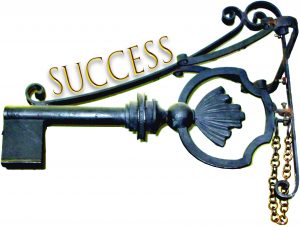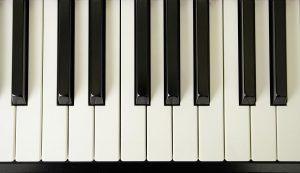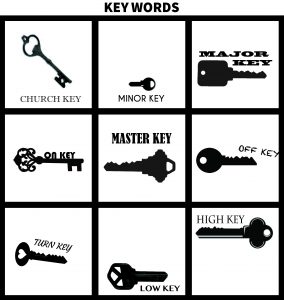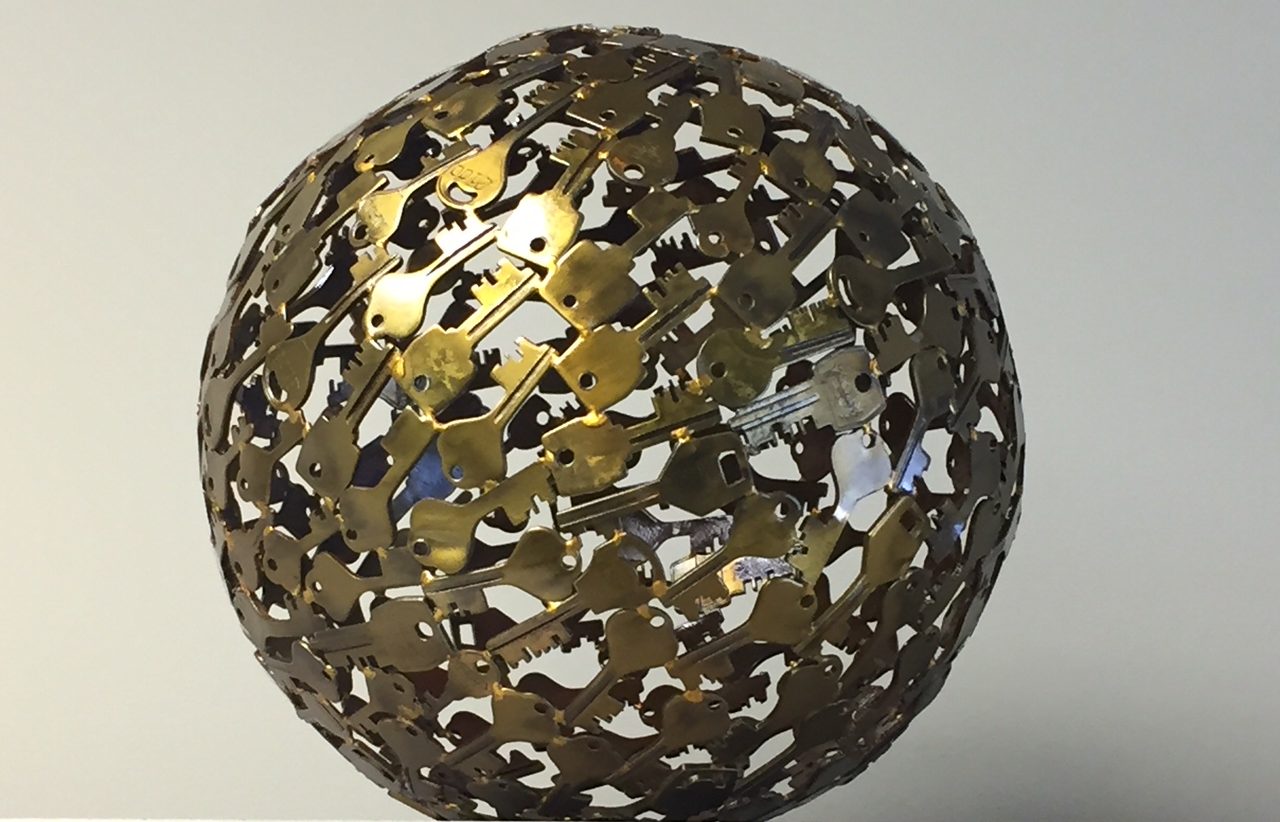Metaphorically speaking…
 A quick online search for graphical icons of the idiom ‘The Key to Success’ led to an apparently unlimited number of inspirational illustrations which unlocked ideas for the design you see here. Gold letters spelling SUCCESS were added to a photo of the antique gate key Cortney’s grandparents purchased in Sweden decades ago. The heavy cast iron key hangs above the front counter at Anderson Lock’s Main Office.
A quick online search for graphical icons of the idiom ‘The Key to Success’ led to an apparently unlimited number of inspirational illustrations which unlocked ideas for the design you see here. Gold letters spelling SUCCESS were added to a photo of the antique gate key Cortney’s grandparents purchased in Sweden decades ago. The heavy cast iron key hangs above the front counter at Anderson Lock’s Main Office.
Thousands of internet-sourced quotations offer advice for seekers of the Key to Success. And, literally hundreds of book titles, from genres as diverse as philosophy, psychology, spirituality, business, leadership and money claim to know the secrets to gaining financial security or meaningful, rewarding relationships.
Infinite ‘Keys to Success’ make it clear that no single Key, or list of the Top Ten Keys, or books about “How to Find Your Key”, guarantees Success!
The fit of a specific key to a lock may be the most commonly used metaphorical association. Countless analogies use keys and locks to interpret both complex concepts, ie. “Neurotransmitters only affect postsynaptic receptor sites that have the correct shape for that particular molecule,” and simple truths, ie. “Education is the key to success.”
Metaphorical keys mainly relate to the small metal instruments that open locks, but there are “key people” in an organization, “key themes” in a book, “key actions” in a strategic plan.
 Music, the universal language, incorporates both the physical: 52 white and 36 black keys on pianos and other musical keyboards, and the relational: on key, off key, minor key, major key, and in the key of A, B, C, D, E, F and G. The key of a piece of music is defined by the group of pitches a composer uses to form a composition.
Music, the universal language, incorporates both the physical: 52 white and 36 black keys on pianos and other musical keyboards, and the relational: on key, off key, minor key, major key, and in the key of A, B, C, D, E, F and G. The key of a piece of music is defined by the group of pitches a composer uses to form a composition.
My quest led to actual keys, like the hundreds hanging on hooks above Anderson Lock’s front counter, as well as symbolic ‘keys’. Locksmiths create Master Keys; jailers rely on paracentric prison keys; cyclists often carry tubular keys. Teachers create Answer Keys.
Additionally, there are things called keys that aren’t keys at all, like the small islands off the coast of Florida, known as the Florida Keys. Their names came from the Spanish word cayo, meaning small island. Key West, Key Largo, and Key Lime Pie have no connection with any of the seventy or so synonyms I found for key. Mispronunciations of cayo became key. Oh!
But, I digress. And now, instead of words, I’ve inserted a Key Word Info graphic:

As you can see, there are countless kinds of keys, and countless ways to become successful. My advice if you are seeking a successful security solution that relies on keys, whether you want tangible keys made of metal or prefer key cards or key fobs or biometric readers, you should call the experts at Anderson Lock.
Keys? We’ve got a million of them!



